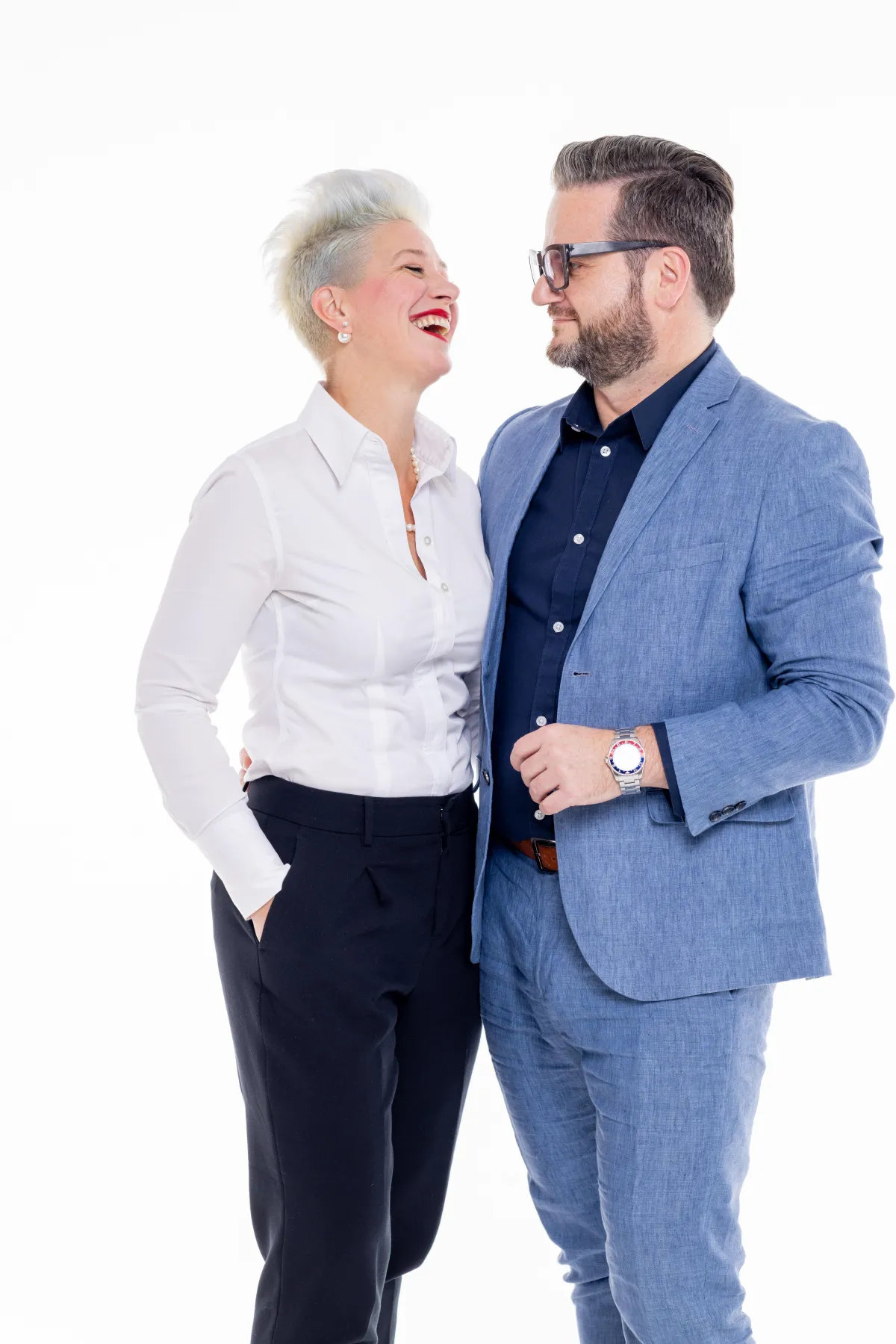
Brigitta & Christian Hoeferle - Dynamic Duo

Brigitta & Christian Hoeferle
Brigitta and Christian Hoeferle are an extraordinary couple who have made remarkable contributions in their respective fields of expertise. With their combined knowledge and shared passion for innovation, they have established themselves as prominent figures in the worlds of communication, cross-cultural consulting and business leadership.
Brigitta brings a diverse background and a drive for success to the table. Her visionary leadership, exceptional problem-solving skills, and progressive mindset have propelled her to achieve remarkable feats throughout her career. She has a keen ability to identify emerging trends and transform them into actionable strategies, inspiring those around her to reach new heights of achievement.
Christian, on the other hand, is renowned for his expertise in cross-cultural communication and global leadership. With an extensive background in intercultural consulting, he has dedicated his career to bridging the gap between cultures and helping individuals and organizations navigate the complexities of a globalized world. His insightful speaking engagements and authored works have empowered audiences worldwide, fostering connections and promoting cultural awareness.
Together, Brigitta and Christian embody a dynamic partnership, combining their talents and knowledge to make a significant impact. They share a mutual commitment to innovation, cultural understanding, and empowering others to thrive in an interconnected world. Their collaborative efforts not only inspire individuals and organizations but also contribute to the greater goal of creating a more inclusive and globally aware society.
Connect with Brigitta & Christian:
Please Share This With Your Followers
